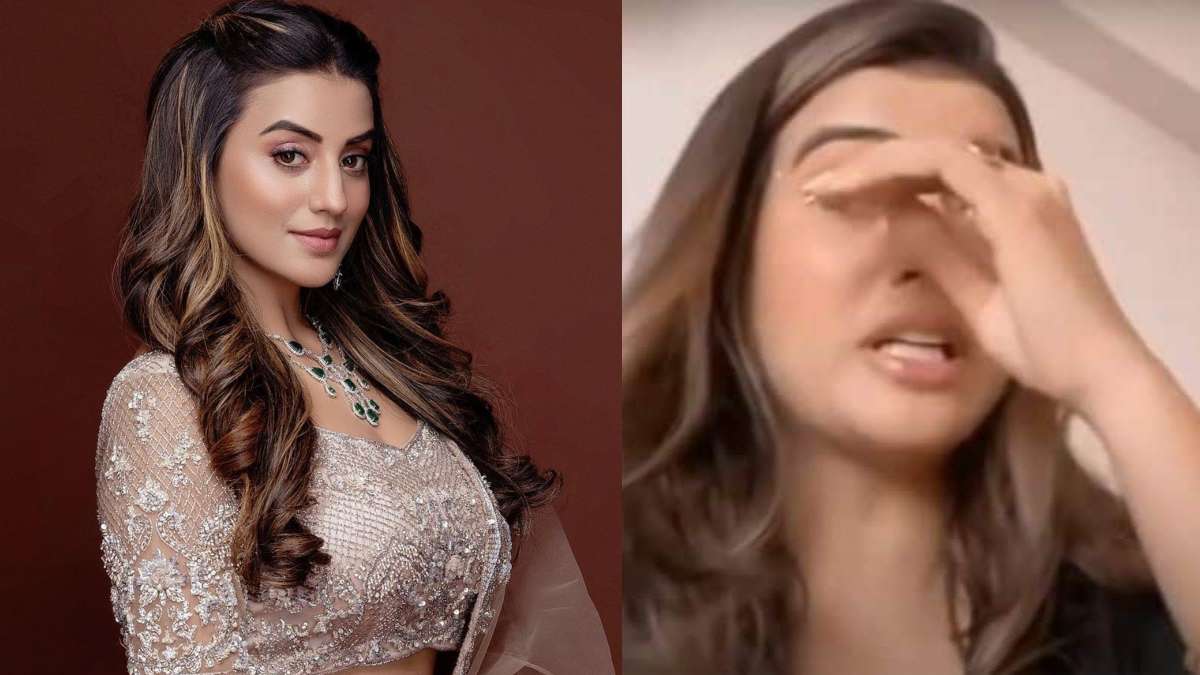Viral MMS Scandals In India: Celebrities & Controversies
Has the digital age, with its relentless connectivity, truly become a breeding ground for privacy violations, particularly in the form of leaked intimate videos, often referred to as MMS?
The proliferation of such content, fueled by readily available technology and a lack of digital awareness, has cast a long shadow over individual privacy and societal norms, creating a landscape where personal moments are vulnerable to public exposure.
The world of leaked private content, a phenomenon often encapsulated by the term "MMS," has become an undeniable reality, especially within the Indian context. The term itself, once a standard of early mobile communication, has been tragically repurposed, becoming a synonym for explicit and often non-consensual content. This transformation underscores a significant shift in digital culture, where the boundaries of privacy and consent are increasingly blurred.
The issue has not only impacted individuals but has also infiltrated mainstream media and entertainment, leading to serious consequences. The digital landscape has witnessed a surge in content related to this, with the unfortunate result of individuals finding their intimate moments exposed to the wider public.
One of the most high-profile cases involves Raj Kundra, a British citizen and the husband of Bollywood star Shilpa Shetty. Beyond his association with the entertainment industry, Kundra is a businessman and owner of a cricket team in the Indian Premier League (IPL). His involvement in the alleged creation and distribution of adult content has drawn extensive media attention and placed his name at the center of controversy.
| Category | Details |
|---|---|
| Name | Raj Kundra |
| Nationality | British |
| Profession | Industrialist, Businessman, Owner of a Cricket Team (IPL) |
| Marital Status | Married to Shilpa Shetty |
| Notable Associations | Bollywood, Indian Premier League (IPL) |
| Controversies | Allegations related to the creation and distribution of adult content. |
Bollywood, too, has not been immune to the ripples of this digital phenomenon. The industry has produced films that either directly address or subtly reference the scandals surrounding MMS leaks, reflecting society's morbid fascination with the issue. Films like "Dev D," "Love Sex Aur Dhoka," "Ragini MMS," and "I Don't Luv You" all delve into the themes of privacy violation, voyeurism, and the repercussions of digital exposure.
The case of Sona Dey, a social media influencer, provides a stark reminder of the emotional toll such incidents can inflict. Dey vehemently denied involvement in an alleged MMS video, asserting that the content was an edited fabrication aimed at damaging her reputation. This highlights the ease with which digital content can be manipulated and the potential for malicious intent.
Anjali Arora, a star known for her appearance on the reality show "Lock Upp," also found herself at the center of controversy surrounding an alleged MMS scandal. She has addressed the issue, denouncing the content as "nonsense," and emphasizing the need for critical examination of such claims.
The accessibility of information on these matters is readily available. News platforms like oneindia.com provide extensive coverage, including breaking news, top stories, live updates, and special reports. This underscores the persistent public interest in these events and the constant need for accurate and up-to-date information.
The legal ramifications of being a victim of a viral MMS are severe, and immediate action is crucial. Individuals who find themselves in this situation are strongly advised to seek legal counsel and to report the incident to cybercrime authorities. Filing a complaint under the Information Technology Act is a fundamental step in seeking redress and initiating a formal investigation. Many organizations in India offer legal support and counseling to victims of online harassment and privacy violations.
The rise of Indian MMS can be traced back to the early days of mobile phone technology in India, particularly when camera phones became widely available. The ease of recording and sharing videos, coupled with a lack of awareness about digital privacy and consent, created an environment where such practices could thrive. The ubiquity of smartphones and social media platforms has further exacerbated the situation.
The incident at Chandigarh University, where a female student allegedly leaked objectionable videos of her fellow peers, has brought the issue into sharp focus. The university was shut down for a week following widespread protests, and the administration suspended the girls' hostel warden for alleged misconduct. The police investigation has led to the recovery of multiple clips, with forensic analysis of mobile phones underway.
In another development, the case of Minahil Malik, a TikTok star, is a further example of how such violations can impact celebrities and public figures. The leaked videos of these individuals have sparked debates about privacy and the responsibilities of the media and the public when such events occur.
In September 2022, reports emerged from Chandigarh University regarding the alleged leak of intimate videos of female students. This incident triggered a series of reactions from students and the administration, and has exposed the dangers of online harassment and privacy breaches.
The incident at Chandigarh University highlights several critical issues:
- The ease with which intimate content can be recorded and distributed.
- The emotional and psychological toll on victims of such leaks.
- The need for robust legal frameworks and cybercrime prevention measures.
- The importance of media ethics and responsible reporting in these cases.
The police investigation has focused on several aspects, including the alleged role of the female student and any potential accomplices. The investigation involves forensics to determine the extent of the leaked material and to identify those involved in the distribution.
The University's administration has denied claims of suicide attempts, emphasizing the need for caution and sensitivity in these matters. The legal ramifications for those involved, including voyeurism and violation of privacy, are significant. The case underscores the challenges of protecting privacy in the digital age and the necessity of fostering a culture of respect and consent online.
In another case from March 2013, a private MMS clip of Mona Singh was leaked, creating a stir on the internet. Singh confirmed that the clip was manipulated and filed a complaint against unknown individuals, calling the act disgraceful. This incident demonstrates the issue of digital content manipulation and the necessity of digital forensics.
The issue of viral MMS leaks extends beyond individuals to also impact industries and societal norms. It underscores the need for a more informed and responsible approach to digital content creation and sharing. The responsibility to respect consent and safeguard privacy falls upon everyone, and a lack of awareness, societal norms that shame victims, and the accessibility of technology are the root causes of this problem.
The cases mentioned above underscore the severe emotional distress and reputational damage victims face. The legal remedies can be complex, requiring victims to navigate cybercrime laws and potentially face lengthy legal battles. Moreover, the societal impact is significant, with victims often facing online harassment and shaming.
- Big Poppa Kim Zolciak The Rhoa Drama You Need To Know
- Img Academy Costs Training At Nick Bollettieris Tennis Academy

Viral Instagram MMS Go Viral Now!

Anjali Arora moves over leaked MMS video controversy, shuts down trolls

Insta Viral MMS Go Viral Now!